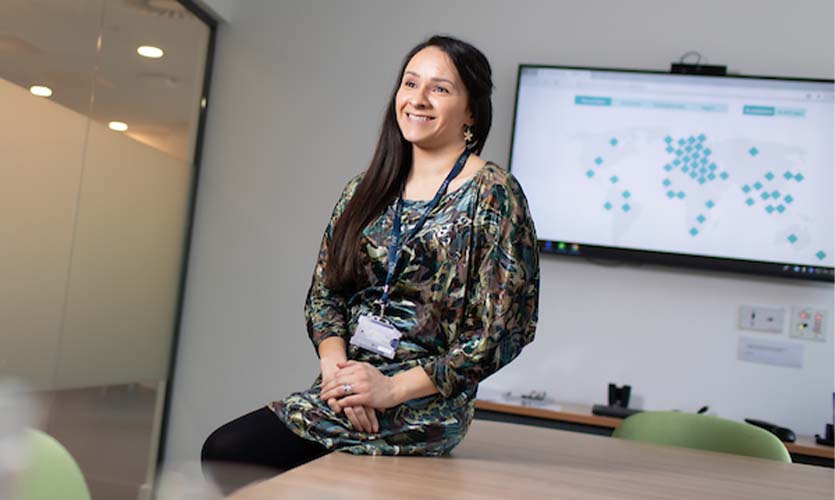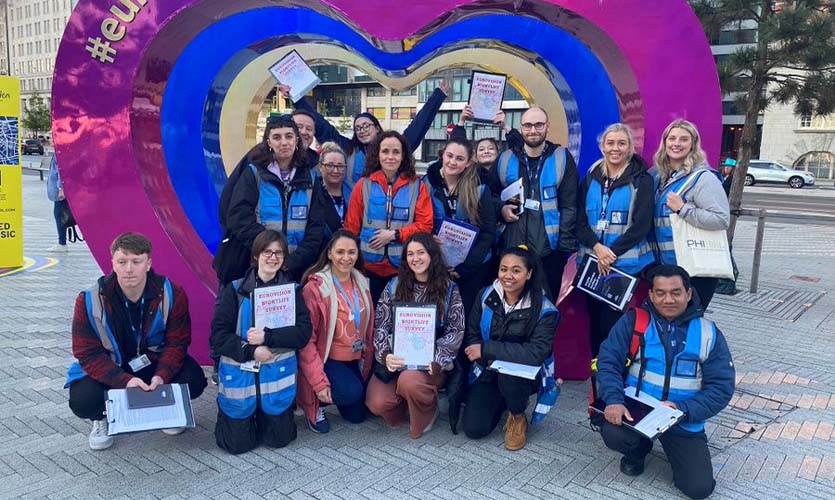Professor Zara Quigg
It’s not only doctors and nurses who are at the coalface of keeping the people of Merseyside healthy and well. People like researcher Professor Zara Quigg play a truly crucial role too.
One of the youngest professors at LJMU, her zeal and energy have placed her at the heart of the fight for better public health in one of the UK’s most deprived regions.
Based at our Public Health Institute, Zara seeks to understand how our behaviour and the communities and settings in which we reside, puts us at risk; how violence, childhood experience, substance abuse, family life, relationships, even going out at night can harm our health, and she does so not by theorising, or judging from afar but by talking with people and working with those communities.
“It’s important to gather information on the population but you need to understand the context and it needs to be real, authentic data,” she says. “That means meeting people on their terms, understanding the lived experience of people, many of whom are vulnerable, or don’t engage with official services.”
One innovative way of gathering data and measuring the impact of a real-life event on the city involved Zara and a host of students and researchers talking to people around Liverpool as they took part in celebrations and events as part of the city hosting the Eurovision Song Contest in 2023. And when it comes to the younger generation, even more creativity needs to be applied to gathering impactful information.
“With children and young people, I need to be especially creative and that often means organising workshops to help them share their experiences and views, be it with drawing or games or whatever.”
She admits her title of ‘behavioural epidemiologist’ might sound remote and academic, but the reality is different, and predicting health trends without first understanding how people tick is a lottery.
Born and raised in Kirkby, Zara is the first in her family to go to university but admits that a life in academia was never in her life plan. Growing up in one of the most deprived parts of the city, Zara just wanted to change things and make things better.
“I was good at maths and science too, but it was serendipity that I ended up reading for a PhD and becoming a LJMU employee.”
A key life-changing moment, which is also one of her proudest, came when she was sent to West Africa as a 22-year-old research assistant. What began as a fact-finding mission ended up with Zara making such an impact that her report crossed the desk of the Gambian Minister of Health, and she was subsequently invited by the UN to develop a framework for preventing substance misuse across West Africa. After two decades of working at local, national and international level, she now heads up the World Health Organisation Collaborating Centre for Violence Prevention.
“I never wanted to be a researcher – but I can see now how valuable it is. The LJMU Public Health Institute is a great example of applied research; we’re not sat behind a desk but out in the community.”
– Professor Zara Quigg

Made a full professor at 38, Zara juggles projects from night-time violence, inter-familial violence and the impacts of child abuse on later behaviours. Her approach is not to preach and impose but to act with and for the groups she studies.
An active member of the Merseyside Violence Reduction Partnership, to name but one, she networks with policymakers, practitioners, community workers and residents to look collectively at the issues, problems and barriers. And every project has been in collaboration.
Among successes she notes a drop in bullying in schools, a fall in sexual violence in the night-time economy and changing attitudes across the board.
“I’m lucky in that the university encourages this work, while in the city-region there is a strong consensus to improve health and to do so on the context of social justice.”


